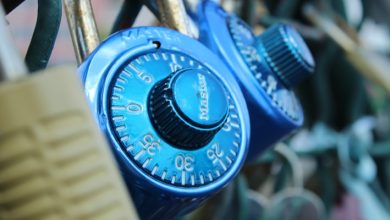Best Practices for Storing Your Cryptocurrency Safely

- Understanding the Risks of Storing Cryptocurrency
- Choosing the Right Wallet for Your Needs
- Implementing Two-Factor Authentication for Added Security
- Creating Secure Backups of Your Private Keys
- Avoiding Common Mistakes in Cryptocurrency Storage
- Utilizing Hardware Wallets for Maximum Protection
Understanding the Risks of Storing Cryptocurrency
When storing your cryptocurrency, it is crucial to understand the risks involved. One of the main risks is the possibility of hacking attacks on your digital wallet. Hackers are constantly looking for vulnerabilities in cryptocurrency storage systems to steal funds. Another risk to consider is the potential for human error, such as sending funds to the wrong address or losing access to your wallet. Additionally, there is always the risk of regulatory changes or government crackdowns on cryptocurrencies, which could impact the value of your investments.
Choosing the Right Wallet for Your Needs
When it comes to storing your cryptocurrency safely, choosing the right wallet for your needs is crucial. There are several types of wallets available, each with its unique features and security measures.
One option is a hardware wallet, which is a physical device that stores your cryptocurrency offline, making it less vulnerable to hacking. Another option is a software wallet, which is a digital wallet that can be accessed online or through a mobile app.
It’s essential to consider factors such as security, ease of use, and compatibility with the cryptocurrencies you plan to store. Research different wallets and read reviews to determine which one is the best fit for you. Remember to always keep your wallet’s private keys secure and never share them with anyone.
By taking the time to choose the right wallet for your needs, you can help protect your cryptocurrency from potential threats and ensure that your investments remain safe and secure.
Implementing Two-Factor Authentication for Added Security
Implementing two-factor authentication is a crucial step in safeguarding your cryptocurrency holdings. By adding an extra layer of security beyond just a password, you can significantly reduce the risk of unauthorized access to your digital assets. Two-factor authentication typically involves a combination of something you know (like a password) and something you have (like a mobile device or hardware key). This means that even if someone manages to obtain your password, they would still need access to your secondary authentication method to gain entry. This extra step can make a world of difference in protecting your funds from potential threats. It is highly recommended to enable two-factor authentication on all of your cryptocurrency accounts to ensure maximum security.
Creating Secure Backups of Your Private Keys
When it comes to storing your cryptocurrency safely, creating secure backups of your private keys is essential. Private keys are the keys that give you access to your cryptocurrency holdings, so it is crucial to ensure that they are backed up in a secure and reliable manner. Here are some best practices for creating secure backups of your private keys:
- Use a hardware wallet: Hardware wallets are considered one of the most secure ways to store private keys. These devices store your keys offline, making them less vulnerable to hacking or malware attacks.
- Encrypt your backups: When creating backups of your private keys, make sure to encrypt them with a strong password. This adds an extra layer of security in case someone gains access to your backup files.
- Store backups in multiple locations: To further protect your private keys, consider storing backups in multiple secure locations. This way, if one backup is lost or compromised, you still have access to your keys.
- Use secure cloud storage: If you choose to store backups in the cloud, make sure to use a secure and reputable cloud storage service. Encrypt your backups before uploading them to the cloud to ensure that they are protected.
- Regularly update your backups: As you make new transactions or generate new keys, remember to update your backups accordingly. Regularly updating your backups ensures that you always have access to your latest private keys.
By following these best practices for creating secure backups of your private keys, you can help safeguard your cryptocurrency holdings and protect them from potential security threats.
Avoiding Common Mistakes in Cryptocurrency Storage
When it comes to storing your cryptocurrency safely, there are several common mistakes that you should avoid to prevent the risk of losing your digital assets. One of the most common mistakes is keeping your cryptocurrency on an exchange for an extended period of time. While exchanges can be convenient for buying and selling cryptocurrency, they are not designed for long-term storage. It is recommended to transfer your cryptocurrency to a secure wallet that you control the private keys for.
Another common mistake is failing to back up your wallet. If your computer crashes or your wallet gets corrupted, you could lose access to your cryptocurrency forever. Make sure to regularly back up your wallet and store the backup in a secure location, such as a safety deposit box or a fireproof safe.
It is also important to be cautious of phishing scams and malware that could compromise the security of your cryptocurrency. Be wary of unsolicited emails or messages asking for your private keys or personal information. Make sure to only download wallet software from reputable sources and keep your antivirus software up to date.
Utilizing Hardware Wallets for Maximum Protection
When it comes to storing cryptocurrency, utilizing hardware wallets is one of the best practices for maximum protection. Hardware wallets are physical devices that store the private keys necessary to access your cryptocurrency securely offline. This means they are not connected to the internet, making them less vulnerable to hacking attempts than online wallets or exchanges.
By using a hardware wallet, you can keep your cryptocurrency safe from online threats such as malware, phishing attacks, and hacking attempts. Additionally, hardware wallets typically require a physical button to confirm transactions, adding an extra layer of security to your funds.
Hardware wallets come in various shapes and sizes, with different features and price points to suit your needs. Some popular hardware wallet brands include Ledger, Trezor, and KeepKey. It is essential to purchase your hardware wallet from a reputable source to ensure its authenticity and security.
Overall, utilizing hardware wallets for storing your cryptocurrency is a reliable way to protect your digital assets from cyber threats and potential security breaches. Investing in a hardware wallet is a smart choice for anyone serious about safeguarding their cryptocurrency investments.



